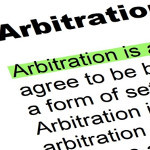Practical Law will present a webinar titled “Ethics Issues in International Arbitration” on Thursday, Oct. 6, at 1-2:30 p.m. EDT.
In a release, the company said the seemingly straightforward process of appointing a neutral tribunal of three arbitrators and conducting the hearings may, in fact, give rise to a multitude of issues counsel and their clients must be aware of. How extensively may the parties communicate with their prospective arbitrator? How must the prospective arbitrator comport himself while being interviewed for the appointment? What are the rules regarding counsel’s interactions with witnesses? Are the rules different depending upon the jurisdiction?
Practical Law, the International Institute on Conflict Prevention & Resolution (CPR), and Jenner & Block will present international arbitration experts Richard Ziegler and Noah Hanft discussing ethics in international arbitration.
During this webinar, attendees will be walked through a hypothetical international arbitration, in which the presenters will consider:
- The parameters of party communications with a party-appointed arbitrator.
- The prospective arbitrator’s duties to maintain neutrality.
- Counsel’s duties in dealing with witnesses, including:
- preparing witnesses for the hearing; and
- communicating with witnesses after the hearings have started.
- The power of the tribunal to determine and redress ethical violations.
- The same ethical issues if the events occurred in the US.
A short Q&A will follow.
Ethics credit are available in multiple states.
Presenters:
Richard F. Ziegler, Partner, Jenner & Block LLP
Richard F. Ziegler is Co-Chair of Jenner & Block’s International Arbitration practice and a former Managing Partner of the firm’s New York Office. He is a former Chairman of the New York State Bar Association Committee on Professional Ethics, and served as Senior Vice President, Legal Affairs, and General Counsel of the 3M Company in St. Paul, Minnesota from 2003-07. Mr. Ziegler is also a member of CPR’s Board of Directors.
Noah J. Hanft, President and CEO, International Institute for Conflict Prevention & Resolution
Noah J. Hanft is the President and CEO of the International Institute for Conflict Prevention & Resolution. Prior to joining CPR, Mr. Hanft was General Counsel and Chief Franchise Officer for MasterCard, where he was responsible for overseeing legal and regulatory affairs, public policy, compliance and many business functions. Mr. Hanft currently serves on the boards of the Legal Aid Society and the Network for Teaching Entrepreneurship and is a member of the Council on Foreign Relations.
Victoria Kummer, Senior Legal Editor, Practical Law Arbitration (Moderator)
Register for the event.
 Just days after approving a controversial rule that will make it much easier for Americans to sue their banks, the U.S.’s top consumer watchdog is already fighting back against attempts to prevent the regulation from taking effect, reports Bloomberg.
Just days after approving a controversial rule that will make it much easier for Americans to sue their banks, the U.S.’s top consumer watchdog is already fighting back against attempts to prevent the regulation from taking effect, reports Bloomberg.



